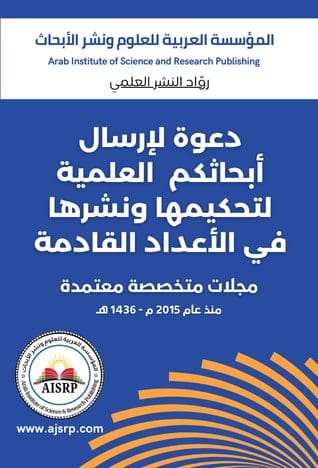The Degree of the Commitment to Quran Methodology in Reform and Combat Administrative Corruption
Abstract:
This study aims to identify the degree of the commitment to Quran methodology in reform and combat administrative corruption: applied Study on female administrative staff in Health Colleges at King Abdul-Aziz University in Jeddah. To achieve study objectives, the descriptive analytical methodology and questionnaire were used to collect the required data. The study population was formed of the female administrative staff members of the health colleges at KAU, who counted (150) employees. Research sample was a surveying sample for all of the research population. The returned questionnaires were (108) and the response rate was 72%. The study concluded that: the degree of health colleges’ female administrative staff commitment in KAU to (transparency, control, interrogation, protection) was fair, based on Fifth Likert Scale. Moreover, the study concluded that the degree of the commitment to Quran methodology in reform and combat administrative corruption between the female administrative staff of the health colleges at KAU was fair, based on Fifth Likert Scale. This may attributed to the educational qualification variable, experience, and job location. Based on these results, the most important recommendations are illustrated as follows: enhance commitment to transparency in KAU’s health colleges to higher levels through making the staff attend seminars and conferences that are concerned with the practices and implications linked to transparency. Raise the level of control systems’ competency, in terms of granting sufficient powers, and support them with specialist human resources. Activate the administrative questioning mechanisms in the universities, and publicize them to all employees, to insure they are reviewed and checked regularly, and be applicable on all without bias. Enhance the role of corruption prevention, through seminars that illustrate Quran methodology in combat administrative corruption, and call out to get benefit from the Islamic Rules, in order to minimize corruption crimes, activate the part of the National Anti-Corruption commission (Nazaha), and open branches in all regions of the Kingdom.
Keywords:Quran Methodology – Combat administrative corruption
الملخص
وفي ضوء نتائج الدراسة أوصت الدراسة: بالعمل على تعزيز الالتزام بالشفافية الإدارية في الكليات الصحية بجامعة الملك عبد العزيز إلى مستويات عالية من خلال إلحاق العاملين بندوات ومؤتمرات تُعنى بالممارسات والمضامين ذات العلاقة بالشفافية، العمل على رفع مستوى كفاءة الأجهزة الرقابية بمنحها الصلاحيات الكافية ودعمها بالكوادر البشرية المتخصصة، تفعيل آليات المساءلة الإدارية في الجامعات والإعلان عنها لجميع الموظفين على أن يتم مراجعتها ومراقبتها باستمرار، وتطبيقها على الجميع دون تحيز وتفعيل دور الوقاية من الفساد الإداري من خلال الندوات التي تشرح منهج القرآن الكريم في مكافحة الفساد الإداري، والدعوة إلى الاستفادة من أحكام الشريعة الإسلامية، للحد من وقوع جرائم الفساد، تفعيل دور الهيئة الوطنية لمكافحة الفساد الإداري، وفتح فروع لها في مختلف مناطق المملكة.
الكلمات المفتاحية: منهج القرآن – مكافحة الفساد الإداري
الباحثات /
خديجة محمود زكي
أماني علي شويل
كلية الاقتصاد والإدارة || جامعة الملك عبد العزيز || جدة || المملكة العربية السعودية
DOI: 10.26389/AJSRP.K120318 عرض البحث كامل عرض العدد كامل



